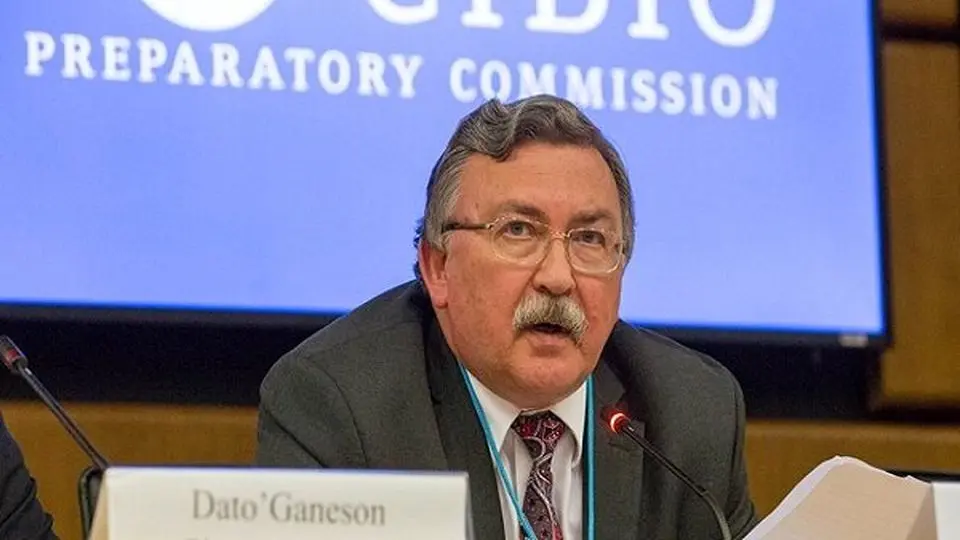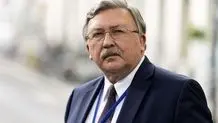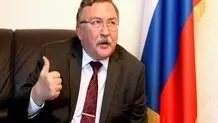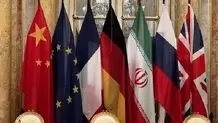Ulyanov says;
West concerns about Iran's atom prog resemble crocodile tears
Russia's permanent representative to international organizations in Vienna says that the concerns raised repeatedly by Western countries in their media about Iran’s nuclear program are no more than “crocodile tears”.

MEHR: Russia's permanent representative to international organizations in Vienna says that the concerns raised repeatedly by Western countries in their media about Iran’s nuclear program are no more than “crocodile tears”.
Earlier, Bloomberg claimed, citing two unnamed diplomatic sources, that IAEA inspectors had found particles with an 84% enrichment degree in Iran.
Perhaps the recent media "leak" is aimed at disrupting the visit of IAEA chief Rafael Grossi to Tehran, Russia's permanent representative to international organizations in Vienna, Mikhail Ulyanov, told Sputnik.
“Unfortunately, such things as 'leaks' of sensitive information in the media are not uncommon. This is done largely for obvious political reasons — to complicate the situation around Iran and its nuclear program. So now, Bloomberg sources decided to 'heat up' the situation on the eve of the upcoming session of the IAEA Board of Governors [to be held in Vienna from March 6 to 10]. Or maybe the task, in addition to this, was to disrupt the plans of the IAEA Director General to visit Tehran. Rafael Grossi has repeatedly stated the importance of such a trip now," Ulyanov said.
"You can't go along with the 'stuffing' that some media operate on and whip up passions, taking into account the sensitivity of the situation around the topic of the Iranian atom, you need to wait for the conclusions of experts," Ulyanov added.
"If we talk about this situation in terms of the JCPOA, then it is a clear demonstration of the importance of its speedy restoration," the envoy said.
According to Ulyanov, the agency's sources demonstrate "the hypocritical position of the Western participants in the Vienna talks", since "if the nuclear deal is revived, the problem with uranium enrichment will disappear by itself — Tehran simply will not be able to produce material with an enrichment level above 3.67%, as it was, in fact, before the US withdrew from the agreement in 2018."
"It is surprising that, despite this, Western colleagues tirelessly and publicly repeat concerns about the expansion of the Iranian nuclear program. The issue can be resolved peacefully and diplomatically, without unnecessary drama, threats, and blackmail. So the concerns that they splash out on the audience, in fact, resemble 'crocodile tears,'" the permanent representative added.
Iran has categorically rejected a report by Western media that it has enriched uranium to levels above 60 percent purity, saying the country's nuclear facilities have never enriched uranium above that level.
The spokesman for the Atomic Energy Organization of Iran (AEOI) Behrouz Kamalvandi said, “The International Atomic Energy Agency (IAEA) is trying to clarify how Iran accumulated uranium enriched to 84% purity.” He added that the IAEA inspectors had found highly enriched uranium particles "within the network of pipes connecting centrifuges used to separate uranium isotopes."
Kamalvandi said Bloomberg’s report was aimed at distorting the realities.
He added that during the enrichment process, the mere existence of individual uranium particles enriched to above 60 percent purity does not mean that uranium is being enriched at levels above 60 percent.
The official was also quoted as saying that the existence of such particles was a totally normal issue in the course of uranium enrichment and could happen even when the feedstock entering centrifuge cascades decreased momentarily.




